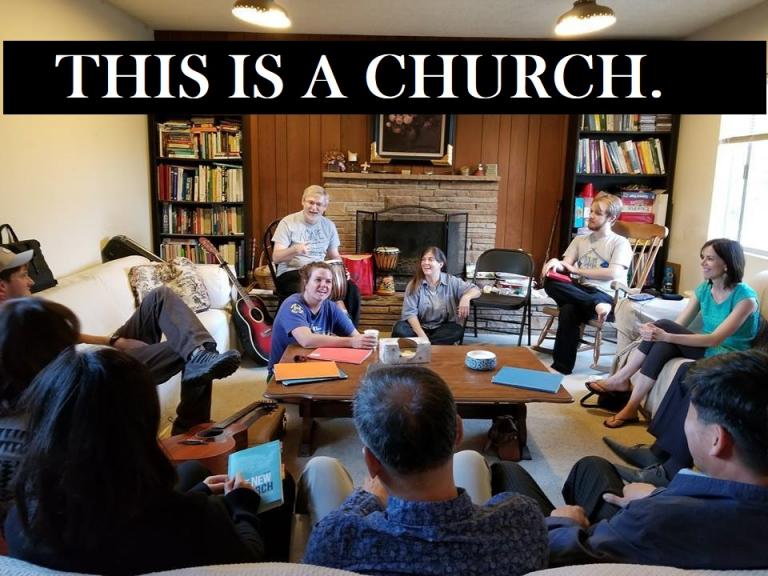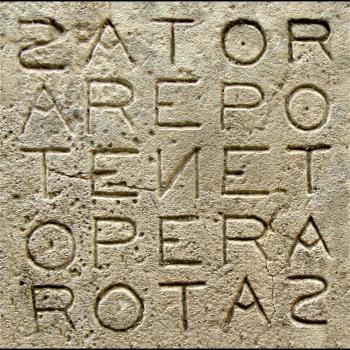
Someone approached me for a quick email interview for a course they were taking in Seminary about Church leadership, growth, etc.
Here are my answers:
What is your personal leadership style, gifts, strengths, spiritual gifts?
For 11 years in our house church, my style was to sit back and allow the Holy Spirit to lead the gathering and guess what? It worked!
Sometimes my goal was to say nothing at all but to learn how to listen and pay attention to what everyone else was saying and to how the Spirit was moving.
Our practice was patterned after 1 Cor. 12 where Paul describes a Body filled with people with various essential gifts who all collaborate together with the Head [Christ] to serve, minister to and bless one another.
What impact does this have on your church/ministry leadership?
By allowing the Body to operate as Paul describes in 1 Cor. 12, I observed how the Holy Spirit really DOES speak to the Body and orchestrate our time together in a marvelous way that can’t be duplicated any other way.
The people in our house church community thrived under this practice. They learned how to hear the voice of the Spirit for themselves, how to serve one another, and how to use their unique spiritual gifts under the direction of the Spirit to lift one another up [not to elevate themselves within the group].
What is the life stage of your church and how does this impact planning activities?The life cycle of our house church was 11 years. We still maintain weekly contact through Zoom gatherings every Sunday morning, but each of us is now active in our own community and serving others in different cities and states around the country.
Some have started other house church communities. Some serve within traditional churches. Others teach Bible studies, lead worship or volunteer to serve the poor in their community.
My wife and I planted a similar house church group in Idaho last year and we are currently in the process of starting one here in El Paso, TX.
What are the Vision, Mission, Covenant and how do these impact the daily functioning of the church/ministry?
The vision and mission of our house churches have always been to be disciples who make disciples of disciples who make other disciples. Our goal when we come together is to practice the 58 “one anothers” provided in the New Testament. We always begin by observing silence together to help us all become aware of Christ’s constant presence within and among us.
Our practice is to spend time speaking to Christ, listening to Christ and adoring Christ together in word, song or sometimes reverent awe and silence. By doing these things, and by following Jesus in our own daily lives, we learn to share Christ and our experience of Christ with one another.
This is the most practical form of discipleship possible. Rather than a top-down model where one or a few “leaders” pass down wisdom to lower “students”, this model allows everyone to take a shared posture of mutual discipleship to Christ where we are all disciples on equal standing who all help one another to follow Christ as we also follow Christ. There is a constant back-and-forth giving/receiving of encouragement and edification passing between the Spirit and every one of us as we are all submitted to Christ.
The exponential level of growth experienced within the Body through this practice is phenomenal. Allowing everyone the opportunity to walk in the operation of their spiritual gifting – the things that Paul says “must be done for the strengthening of the Church” – is very essential to the life and health and spiritual development of the entire Body of believers. New converts advance very quickly into their giftings and flow effortlessly into their function within the Body; serving one another in humility and love.
What are the goals for strategic planning for discipleship?
We don’t do any “strategic planning” for discipleship. We simply rest in our own discipleship to Christ and allow everyone else within the Body to follow Christ alongside everyone else. If there is a “plan” it is simply to be a disciple of Jesus. If we are disciples of Jesus, then we can help one another to follow Jesus as we learn from one another [because we are all focused on following Jesus in our own daily life].
What principles of congregational life promote church growth and health?
The focus on Christ alone as our functional “leader” and “pastor” is the primary principle. The freedom to practice our spiritual gifts within the Body is essential to the life and health of the Body. We share meals together every time we gather in person. We don’t attempt to prove ourselves right or anyone else wrong.
Our focus is on Christ: knowing Him, following Him, becoming like Him, and sharing Him and His life with one another. Honoring one another is very important. No one is superfluous. Everyone’s voice matters. None of us if more important, or less important.
What are the fundamental practices of this church?
Practical daily submission to Christ in our personal lives and practical submission to Christ in our corporate gatherings.
Love is a fundamental practice. Compassion, mercy, grace, joy, service, humility, and devotion to Christ are what flow out of that.
What are the challenges facing the church in the next decade?
The Church [worldwide] faces a challenge of focus. As long as Christians focus on anything other than Christ, we will continue to drive people away. Millions of young people are leaving the Church. [See Barna, Pew Research, etc. statistics on the “Nones” and the “Dones”]. Why are they leaving? Because they want Jesus and we’re giving them politics. They want Jesus and we’re focused on being right.
Until we can understand that the Gospel is not about having the right information about God – being right – but about an actual connection with God – abiding in Christ – then we will continue to wither. The Gospel is not about “information”, it is about “transformation” and this can only happen when/if we shift back to a focus on the life of Christ within the Body – individually and corporately.
Do you believe other churches should learn from your church? Why or Why not?
Yes, I do. But only if those churches are willing to allow certain practices to die. Unless a seed falls to the ground and dies, it cannot fulfill its purpose. In some ways, the Church today is having all that does not contribute to the life of the Body stripped away. If we can see this as an opportunity to start over again with new eyes, new practices [which are hardly “new” but rather “ancient” as they come from the First Century ekklesia], then perhaps the future could be better than our current experience. One can only hope.
But, I do have hope because Jesus said that He would build His Church [not us]. So, as long as we can get out of His way and allow Him to do His job [and if we can find our way to operate as Paul describes in 1 Cor. 12 – as an actual “Body” of Christ that is fully submitted to the “Head” – everything will be just fine.
**
What if Hell isn’t an eternal torture chamber and God is better than you think? Join me for a 3-week online course to learn the historical origins of Eternal Conscious Torment and the other 2 Biblical views of Hell taught by the Christian Church from the very beginning.
The 3 Biblical Views of Hell Examined Class starts Oct. 5
**
Keith Giles and his wife, Wendy, work with Peace Catalyst International to help build relationships between Christians and Muslims in El Paso, TX. Keith was formerly a licensed and ordained minister who walked away from organized church over a decade ago to start a home fellowship that gave away 100% of the offering to the poor in the community. Today he is the author of several best-selling books, including “Jesus Unexpected: Ending The End Times To Become The Second Coming” which is available now on Amazon.













